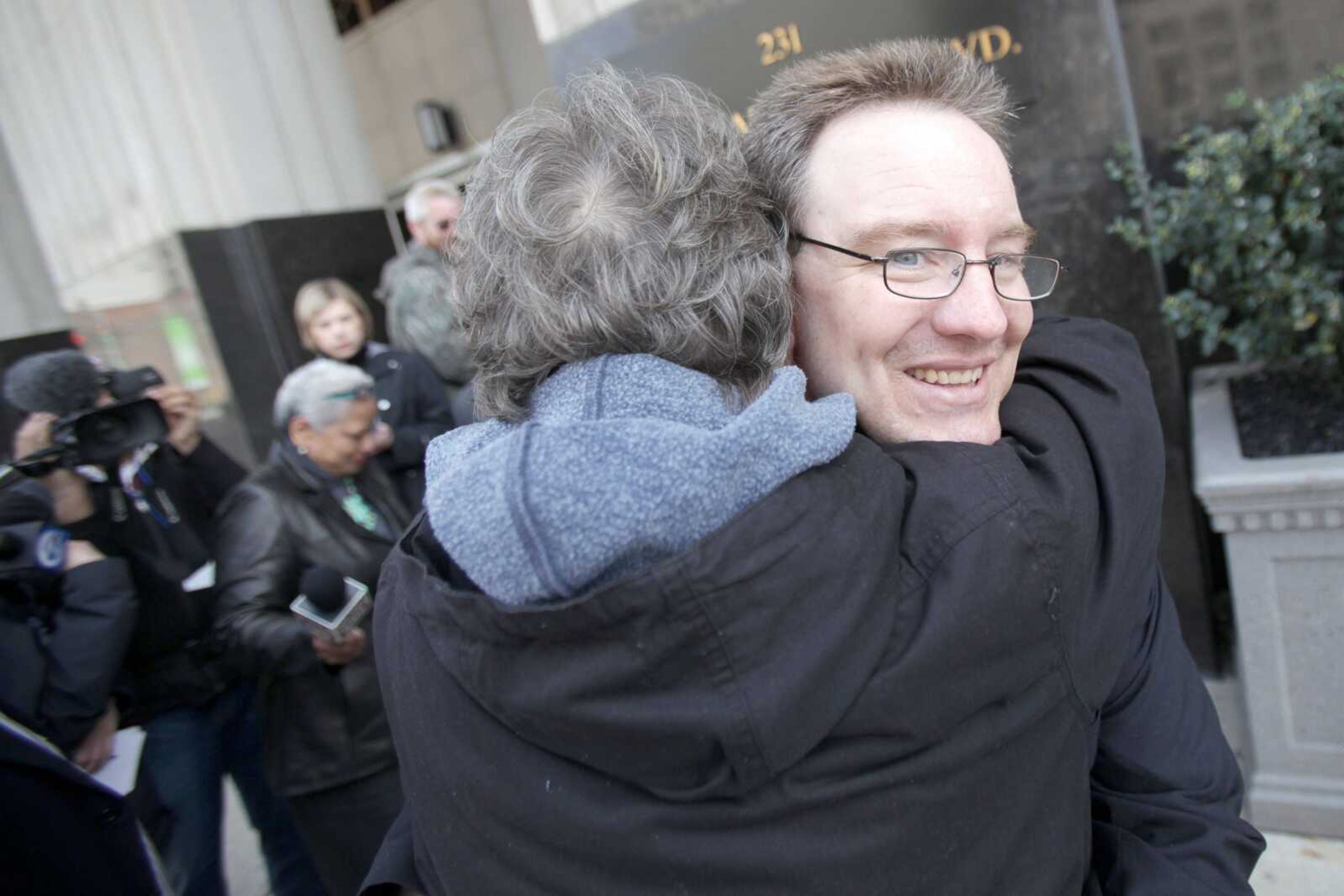Militia acquittal could make feds reluctant to investigate certain cases, experts say
DETROIT -- The acquittal of seven Michigan militia members charged with conspiring to go to war against the government could make federal agents reluctant to pursue certain investigations at a time when the number of so-called patriot groups is increasing nationwide, experts said Wednesday...
DETROIT -- The acquittal of seven Michigan militia members charged with conspiring to go to war against the government could make federal agents reluctant to pursue certain investigations at a time when the number of so-called patriot groups is increasing nationwide, experts said Wednesday.
The FBI ran an 18-month probe of the Hutaree militia, placed an informant and undercover agent inside the group and emerged with major charges of conspiring to rebel against the government and use weapons of mass destruction.
After six weeks of trial, however, a judge this week said the case didn't even deserve to go to the jury and declared all seven not guilty.
"It's an embarrassment to the government to lose this case," said Mark Potok, who tracks extremist groups at the Southern Poverty Law Center, a noted civil rights organization in Montgomery, Ala. "I very much worry this could discourage officials from moving forward on the most open-and-shut cases in the future. I'm not trying to criticize the judge at all, but it might have ramifications."
Potok said most members of militias never will commit a crime but the "militia movement has produced an enormous level of criminal violence." The law center counted more than 1,200 anti-government groups last year and lists them on its website. The FBI recently said it is focusing on "sovereign citizen" extremists who don't recognize government authority.
For weeks, jurors in Detroit heard secretly recorded conversations between militia leader David Stone and an FBI informant and agent. He talked about killing police, building bombs and engaging an international coalition of freedom-hating law enforcers and foreign troops he called the "brotherhood."
For two years, from the day Stone and others were swept up in a series of highly publicized raids mostly in southern Michigan, federal authorities said the Hutaree wanted to kill an officer, attack the funeral, cause chaos in the countryside and launch war against the government. But prosecutors this week acknowledged there was no specific plan -- an admission that clearly irritated the judge.
"What the government has shown, instead of a concrete agreement and plan to forcibly oppose the authority of the government, is that most -- if not all -- of these defendants held strong anti-government sentiments," Roberts said in a 28-page decision. "But the court must not guess about what defendants intended to do with their animosity."
The judge called evidence "minuscule" and "woefully lacking" and said it would be "incredible" for her to infer militia members understood Stone's desires and had struck some kind of agreement for war.
Chicago lawyer Lloyd Meyer, who prosecuted militia leaders in southwestern Michigan in the late 1990s, said the government went after too many fish in the Hutaree case when it should have focused on a few "violent sharks."
"Judges and juries understand the danger of machine guns. You don't make it a case about sedition. I thought that went out with John Adams," Meyer said. "The feds should be more conservative after this disaster. They're creating hate and discontent in the very community they're trying to win over."
At trial, FBI agent Leslie Larsen admitted writing an email during the investigation that suggested she wouldn't be satisfied with just a few charges. Defense lawyers claimed it was proof justice wasn't the focus of the Hutaree probe. The FBI and U.S. attorney's office in Detroit declined to comment on the case, noting that David Stone and son Joshua Stone still are on trial for some remaining gun crimes.
"You always learn more by the cases you lose than the cases you win," said Alan Gershel, a former federal prosecutor who teaches at Thomas M. Cooley law school in suburban Detroit. "At what point in time does bar talk become criminal talk? Where that line is is simply not clear. I think the next time around they'll be as careful as they can be before pulling the trigger on an indictment."
Meanwhile, five of the seven defendants cleared of all charges had their first full day of freedom Wednesday. Michael Meeks, 42, of Manchester, Mich., wants family heirlooms returned to him, a shotgun from his grandfather and a musket from his great-great-grandfather. He said Hutaree was a "survival organization," not really a militia.
"Maybe they were trying to make a name for themselves," Meeks, a former Marine, said of federal authorities who pursued him. "I don't feel any animosity. They have a tough job and they're doing the best they can. ... We're not part of the problem. We're part of the solution."
Connect with the Southeast Missourian Newsroom:
For corrections to this story or other insights for the editor, click here. To submit a letter to the editor, click here. To learn about the Southeast Missourian’s AI Policy, click here.










